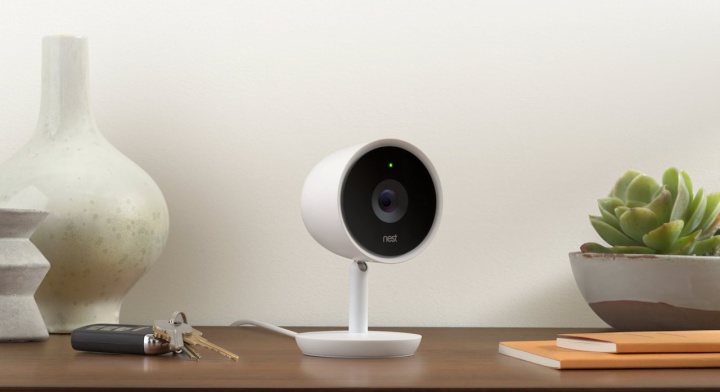
Nest, the smart thermostat maker Google acquired in 2014, is the world’s best-known home automation brand. The company is now selling its smart home products and services in New Zealand.
Smart home technology has been slow to take off around the world. It gets the attention from technology fetishests, but, despite years of hype and marketing, has yet to break into the mainstream. It remains a tiny niche.
Take Nest’s thermostats. They look good. They get rave reviews in technology publications. Users swear they can save hundreds on their power bills with them. Yet Google only sold 1.3 million in 2015.
To put things in perspective, Apple sold
6 million Watches in three months during the same
year.
Nest performances disappointing
Some analysts report Google is disappointed with Nest’s performance to date. It looks a long way from recovering the US$3.2 billion it paid for Nest and the US$550 million it paid for Dropcam, which makes home security cameras. The two brands have since been merged.
That doesn’t mean Google’s investment will never pay off. Nest sits alongside Google’s Speaker and Chromecast.
All are part
of a “connected home” strategy. The idea is that you can
speak to tell Google to turn up the heat and get the devices
to display your camera’s security images on your TV via
Chromecast. On a good day it all works.
Smart home still immature
Home automation is still in its infancy. About one in 20 US homes have one or more smart home components. Hardly any have a full suite.
The numbers will be far lower in New Zealand. Apart from anything else, few New Zealand homes have the kind of central heating system that can make full use of a Nest controller.
What’s more the Unisys Security Index shows we’re wary of the Internet of Things. There’s a huge potential for the Internet of Things to make smart home devices even smarter, but for now that’s not happening fast enough.
While companies are
quick to embrace the IoT
technology that uses sensors, communications, computing and
automation to save money or speed processes, doing the
same things at home feels like playing with
toys.
Your idea of fun?
Make no mistake, home automation vendors are on to this, they often talk about their products being ‘fun’ or use similar language. They also like to use fear to sell. The curious press release from Google about Nest’s New Zealand launch is full of words like ‘worry’, ‘stolen’ and ‘safe’.
Not that there’s anything wrong with home security, but Google lays it on thick.
Nest gets around two of the biggest objections to home automation. First, most smart home products are too expensive to take seriously. Who would in their right mind would spend more on an intelligent fridge than a new car?
There are three Nest cameras. With prices between $360 and $550 they are not cheap, you can buy cameras for a tenth of that. Likewise the $220 smoke alarm. You can buy an unconnected one in Mitre 10 for about $10. Yet, these are small investments to get started with home automation.
The second object is that
home automation technology is too hard to use or install and
the parts don’t tend to work well with each other. Nest
gets around this.
Simple, needs to be simpler
When Google wraps the technology in with its Speaker and Chromecast things will be even simpler. Where this leaves households with Amazon or Apple technology is another question.
Perhaps a more pressing question is what are the consequences of huge technology giants like Google owning the home automation market? There will be privacy concerns and the problems associated with technology lock-in, switching from a Google home to, say, an Amazon one would be difficult.
Another issue is where is the business model here? Google didn’t spend the thick end of half a trillion dollars to flog home gadgets. It wants more back from Nest than hardware sales. How will that work for the company and, more to the point, how will that business model work for you?
Google opens door to New Zealand smart home was first posted at billbennett.co.nz.



 Binoy Kampmark: Detained Without Charge - Eleven Yemenis Leave Guantánamo
Binoy Kampmark: Detained Without Charge - Eleven Yemenis Leave Guantánamo Ramzy Baroud: The War Criminal 'Victim' - Netanyahu’s Inevitable Fate
Ramzy Baroud: The War Criminal 'Victim' - Netanyahu’s Inevitable Fate Martin LeFevre - Meditations: From Symbolic Consciousness To Insight Consciousness
Martin LeFevre - Meditations: From Symbolic Consciousness To Insight Consciousness Binoy Kampmark: Arresting And Killing Greenies - Targeting Climate Change Protests
Binoy Kampmark: Arresting And Killing Greenies - Targeting Climate Change Protests Ian Powell: Welcome Puberty Blockers Report But Beware Derailing Transphobia
Ian Powell: Welcome Puberty Blockers Report But Beware Derailing Transphobia Gordon Campbell: On Why We Can’t Survive Two More Years Of This
Gordon Campbell: On Why We Can’t Survive Two More Years Of This